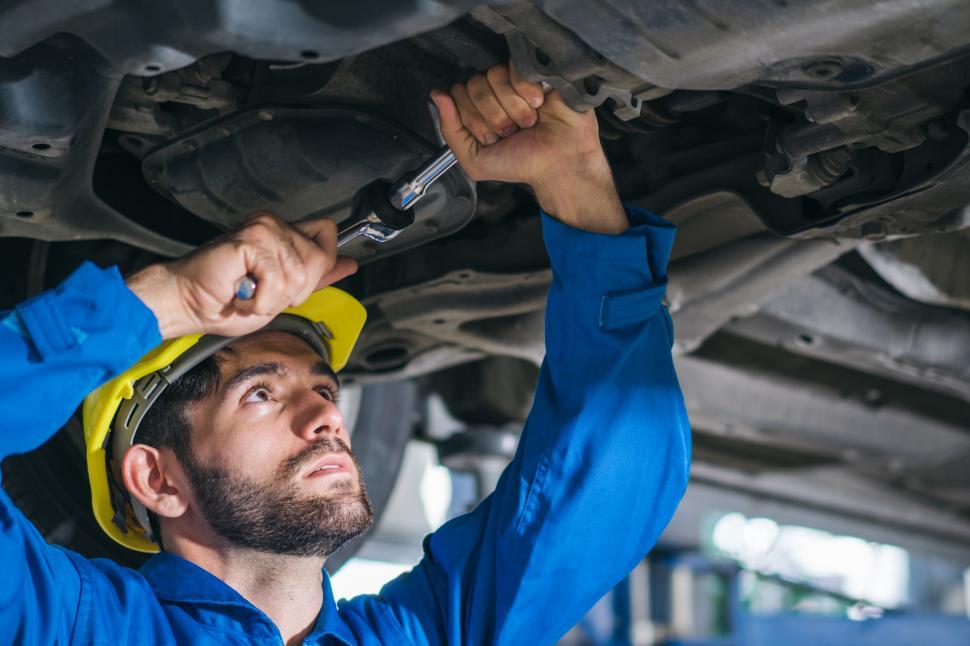A defective cooling (A/C) system can make a summertime drive excruciating. From warm air blowing out of the vents to strange noises or perhaps no cool air in all, there are a number of prospective reasons for A/C problems in your vehicle. By comprehending the most usual factors for A/C troubles, you can address the concern better and stay clear of unneeded repairs.
Right here are a few of one of the most frequent root causes of A/C troubles in cars and trucks:
If you observe that your A/C is blowing warm air or isn't cooling effectively, it might be an indication that the refrigerant level is low. In this case, a specialist technician will certainly need to check for leaks and recharge the system. It must be repaired to protect against the refrigerant from leaving again. if a leakage is located.
Usual indications of a faulty compressor include loud, uncommon sounds (like grinding or squealing) when the A/C is activated, or a lack of cooling air movement. If the compressor is the problem, it might require to be fixed or replaced, which can be a pricey fix.
![]()
Replacing the cabin air filter is a simple and low-cost solution. Depending on your automobile, it's recommended to change the filter every 15,000 to 30,000 miles or as defined in your auto's owner's handbook.
Electric issues are typically complicated to detect, and they may cause periodic problems with your A/C. If your A/C all of a sudden stops functioning or the controls appear unresponsive, it deserves having the electrical system checked by a certified mechanic to fix the concern and determine.
If you discover weak air flow or no air originating from the vents in all, maybe an indication of a falling short blower motor. Fixing the blower or replacing motor is vital to bring back correct air flow in your A/C system.
A blocked condenser is often an easy solution-- cleansing it out can assist boost airflow and cooling performance. If the condenser is severely damaged, it might need to be replaced. On a regular basis examine the condenser for particles to aid preserve ideal A/C efficiency.
![]()
If you presume a leakage, an auto mechanic can do an analysis check using specialized devices to repair the leak and locate. It is necessary to fix any kind of leakages asap to avoid additional damages to the system and stay clear of high repair prices.
Avoiding A/C Troubles. To maintain your A/C in optimum problem and stay clear of pricey fixings, here are some safety nets you can take:
Run the A/C routinely: Also in cooler months, running the A/C for a couple of minutes helps oil the system and avoids seals from drying out. Adjustment the cabin air filter: Routinely change the cabin air filter to make sure great air movement and to avoid obstructing. Check for leaks: Have your A/C system inspected regularly for refrigerant leaks to protect against damages. Clear the condenser: Clean the condenser on a regular basis to get rid of any type of particles that might obstruct airflow. Final thought. Regular upkeep and timely repair work are essential for maintaining your A/C system running smoothly, guaranteeing you stay comfy and cool throughout those hot summertime months. If you're experiencing A/C concerns, get in touch with a professional auto mechanic to identify and fix the issue successfully.
Right here are a few of one of the most frequent root causes of A/C troubles in cars and trucks:
- Low Refrigerant Degrees. If the refrigerant level is low, the system will not be able to cool down efficiently. This is commonly triggered by leaks in the A/C system.
If you observe that your A/C is blowing warm air or isn't cooling effectively, it might be an indication that the refrigerant level is low. In this case, a specialist technician will certainly need to check for leaks and recharge the system. It must be repaired to protect against the refrigerant from leaving again. if a leakage is located.
- Broken Compressor. The compressor is the heart of your lorry's A/C system, accountable for flowing refrigerant via the system. It's powered by the engine and works by pressurizing the cooling agent, which then cools down the air before it enters the cabin. If the compressor fails, the A/C will not have the ability to distribute refrigerant, which implies your A/C will stop working completely.
Usual indications of a faulty compressor include loud, uncommon sounds (like grinding or squealing) when the A/C is activated, or a lack of cooling air movement. If the compressor is the problem, it might require to be fixed or replaced, which can be a pricey fix.

- Obstructed or Dirty Air Filter. The cabin air filter in your automobile avoids dirt, dust, and particles from going into the A/C system and circulating inside the cabin. Nonetheless, gradually, the filter can end up being blocked with contaminants, which can limit air movement and create the A/C to carry out inadequately. When air movement is blocked, it can result in warm air blowing from the vents, or no air in all.
Replacing the cabin air filter is a simple and low-cost solution. Depending on your automobile, it's recommended to change the filter every 15,000 to 30,000 miles or as defined in your auto's owner's handbook.
- Electrical Problems. The A/C system counts heavily on electric parts to operate properly. If there is a breakdown in any of the electric parts, such as a blown fuse, malfunctioning wiring, or a negative button, it can trigger your A/C to quit working or act unpredictably.
Electric issues are typically complicated to detect, and they may cause periodic problems with your A/C. If your A/C all of a sudden stops functioning or the controls appear unresponsive, it deserves having the electrical system checked by a certified mechanic to fix the concern and determine.
- Faulty Blower Electric Motor. The blower electric motor is accountable for pressing air into the cabin with the A/C system. If the blower motor is malfunctioning, it can cause weak or no air flow, also if the A/C system is running. Blower electric motor problems are commonly brought on by troubles with the motor itself, the blower resistor, or the fuse.
If you discover weak air flow or no air originating from the vents in all, maybe an indication of a falling short blower motor. Fixing the blower or replacing motor is vital to bring back correct air flow in your A/C system.
- Clogged Condenser. The condenser is accountable for removing warmth from the cooling agent as it circulates via the A/C system. If the condenser ends up being clogged with dust, leaves, or particles, it can avoid the cooling agent from properly releasing heat, which results in bad cooling efficiency.
A blocked condenser is often an easy solution-- cleansing it out can assist boost airflow and cooling performance. If the condenser is severely damaged, it might need to be replaced. On a regular basis examine the condenser for particles to aid preserve ideal A/C efficiency.

- Dripping A/C System. A leak in your A/C system can trigger a variety of problems, as the cooling agent progressively leaves. Leaks may take place in pipes, connections, or components like the evaporator or condenser. When refrigerant leaks out, the system can not preserve the appropriate pressure, which leads to reduced cooling capacity and eventual failing of the A/C system.
If you presume a leakage, an auto mechanic can do an analysis check using specialized devices to repair the leak and locate. It is necessary to fix any kind of leakages asap to avoid additional damages to the system and stay clear of high repair prices.
Avoiding A/C Troubles. To maintain your A/C in optimum problem and stay clear of pricey fixings, here are some safety nets you can take:
Run the A/C routinely: Also in cooler months, running the A/C for a couple of minutes helps oil the system and avoids seals from drying out. Adjustment the cabin air filter: Routinely change the cabin air filter to make sure great air movement and to avoid obstructing. Check for leaks: Have your A/C system inspected regularly for refrigerant leaks to protect against damages. Clear the condenser: Clean the condenser on a regular basis to get rid of any type of particles that might obstruct airflow. Final thought. Regular upkeep and timely repair work are essential for maintaining your A/C system running smoothly, guaranteeing you stay comfy and cool throughout those hot summertime months. If you're experiencing A/C concerns, get in touch with a professional auto mechanic to identify and fix the issue successfully.
Navigation
Home
Latest Posts
Apply for Auto Financing Online at Modern Chevy
Published Dec 19, 24
2 min read
Modern Nissan of Concord
Published Dec 19, 24
1 min read
Modern Chevrolet
Published Dec 19, 24
2 min read